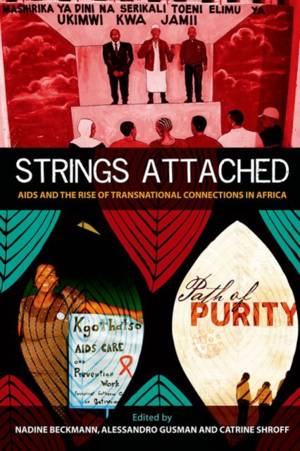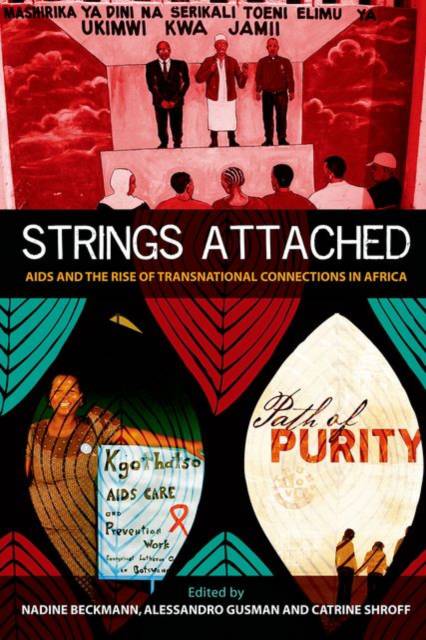
- Afhalen na 1 uur in een winkel met voorraad
- Gratis thuislevering in België vanaf € 30
- Ruim aanbod met 7 miljoen producten
- Afhalen na 1 uur in een winkel met voorraad
- Gratis thuislevering in België vanaf € 30
- Ruim aanbod met 7 miljoen producten
Zoeken
Strings Attached
AIDS and the Rise of Transnational Connections in Africa
€ 159,95
+ 319 punten
Omschrijving
Religion has become deeply involved in HIV/AIDS treatment, care and prevention, and is substantially influencing attitudes and behaviour in the domains of sexuality, relationships and the body. At the same time, AIDS as a disease, as a field of biomedicine, and as a realm of international aid interventions is heavily affecting socio-religious formations and developments in Africa. Religion and AIDS are transforming African public and private domains together. Yet, scant attention is paid to the ways in which this intertwined engagement between the domains of religion and the domains of AIDS prevention, care, and treatment in African societies become increasingly linked to an outside world. This book seeks to address the question why so much of the transnational religious engagement with the disease has seemed to serve a conservative agenda. It is unique in drawing attention to the transnationalisation of religion and AIDS in Africa. The disciplinary scope for studying this phenomenon is wide-ranging as it speaks to anthropological, sociological, developmental, historical, and religious studies, and global health perspectives on these issues. Introducing concepts from the study of transnationalism into the study of religion and AIDS and their mutual intertwinement, this book offers the various fields which explore how religious ideologies and moralities have been shaping the experience of AIDS in Africa a new set of conceptual tools for analysis. The multi-disciplinary, empirical chapters from a wide range of localities shows how African public domains are being shaped by forces that are transnational, steered by forceful religious and moral agendas, and often have substantial international resources behind them. These are, so the authors argue, the strings attached to the present-day transnational, religious involvement with AIDS in Africa.
Specificaties
Betrokkenen
- Uitgeverij:
Inhoud
- Aantal bladzijden:
- 330
- Taal:
- Engels
- Reeks:
- Reeksnummer:
- nr. 194
Eigenschappen
- Productcode (EAN):
- 9780197265680
- Verschijningsdatum:
- 27/05/2014
- Uitvoering:
- Hardcover
- Formaat:
- Genaaid
- Afmetingen:
- 165 mm x 236 mm
- Gewicht:
- 771 g

Alleen bij Standaard Boekhandel
+ 319 punten op je klantenkaart van Standaard Boekhandel
Beoordelingen
We publiceren alleen reviews die voldoen aan de voorwaarden voor reviews. Bekijk onze voorwaarden voor reviews.










